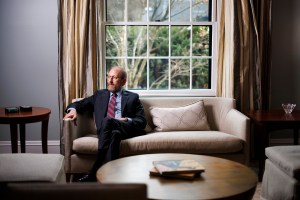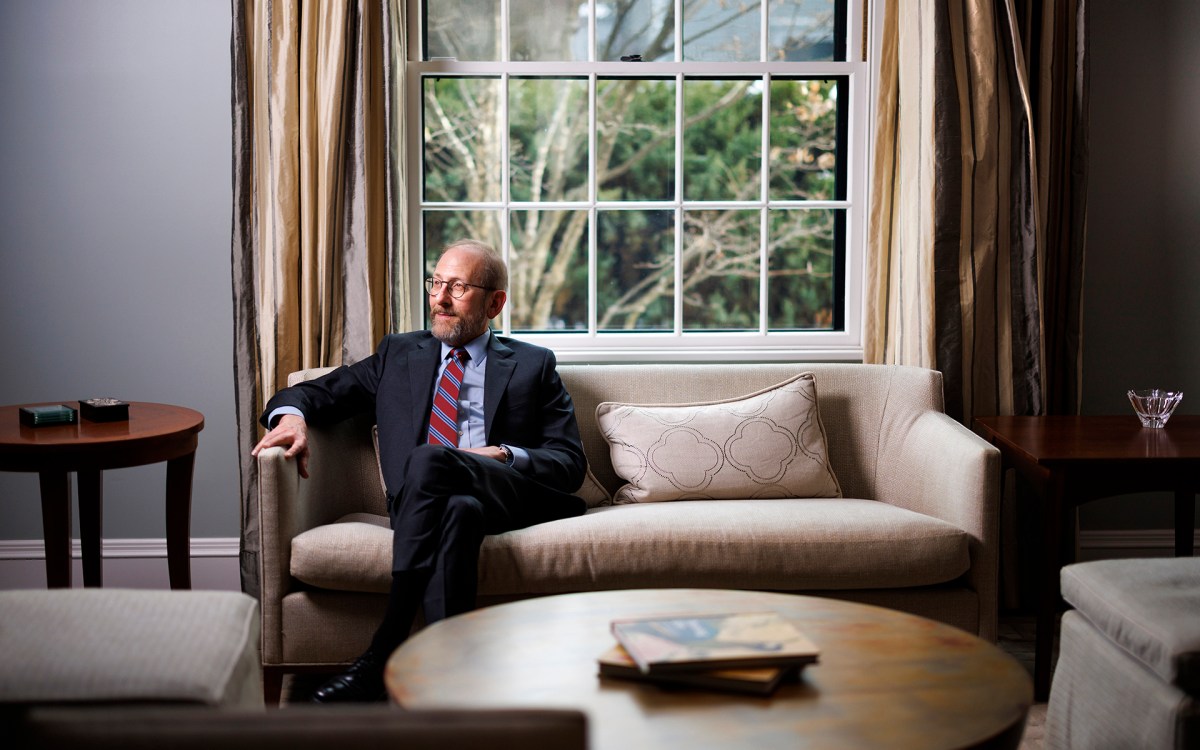Edwin Augustus Cranston, 89
Memorial Minute — Faculty of Arts and Sciences
At a meeting of the Faculty of Arts and Sciences on Feb. 7, 2023, the following tribute to the life and service of the late Edwin Augustus Cranston was spread upon the permanent records of the Faculty.
As one of the preeminent interpreters of ancient and classical Japanese poetry of his generation, Edwin A. Cranston shaped the understanding of Japanese literature in the Anglophone world through a vast corpus of translations and erudite commentary. Cranston believed that “two tests of a translator are the ability to render the text accurately, and to render it with stylistic appropriateness.” His translations always passed both tests, combining “accuracy,” derived from his impeccable historical scholarship and linguistic precision, and “stylistic appropriateness,” rooted in his unparalleled ability to match the rhythms of classical Japanese in English. A lifetime of reading and studying European and American literature helped nurture in Cranston a poetic sensibility that he drew upon to make classical Japanese verse uniquely accessible and illuminating to Anglophone readers. His preferred scholarly subject was the thirty-one-syllable short poem, the waka (or tanka), as seen in his magnum opus: two massive publications of a projected four volumes of translations intended to cover the entire history of classical Japanese poetry up to the year 1502. The first installment, which he began working on in the mid-1970s, was published in 1993. Entitled “A Waka Anthology, Volume One: The Gem-Glistening Cup” (Stanford University Press), it includes nearly 1,600 poems up to the end of the eighth century. The second volume, “A Waka Anthology, Volume Two: Grasses of Remembrance” (Stanford University Press), was published in 2006, with over 2,700 poems, including all 795 waka woven into Japan’s most celebrated classical narrative work, “The Tale of Genji.”
Throughout his career, Cranston would highlight the work of women poets, from his first book, “The Izumi Shikibu Diary: A Romance of the Heian Court” (Harvard University Press, 1969), based on his doctoral dissertation, to one of his final publications, “The Secret Island and the Enticing Flame: Worlds of Memory, Discovery, and Loss in Japanese Poetry” (Cornell University, 2008), treating a selection of ancient love poems alongside poetry by Yosano Akiko (1878–1942) and Mizuno Ruriko (b. 932). A poet in his own right, Cranston published in 1995 a sequence of 100 linked verses (renga) in Japanese and English, having written an article on the solo sequence of the medieval poet Shinkei (1406–1475) the year before. His literary tastes were discerning but diverse. He established a strong and deep connection with the poetry and legacy of Robinson Jeffers, joining other poets and Jeffers aficionados for readings and seminars at the poet’s home, Tor House, in Carmel. And his interest in the verse practices of Alexander Pushkin led him to poetic experiments that he termed studies in Pushkinotics.
In addition to his literary studies and explorations, Cranston also collaborated with his spouse, the art historian Fumiko Cranston (née Edagawa), to make several important contributions at the intersection of Japanese art and literature. “The Courtly Tradition in Japanese Art and Literature: Selections from the Hofer and Hyde Collection” (Fogg Art Museum, Harvard University, 1973), co-authored by the Cranstons and the late Professor John M. Rosenfield, remains an invaluable resource on the important collection of Japanese literary artifacts in the Harvard Art Museums.
Edwin Cranston was born on Oct. 18, 1932, in Pittsfield, Massachusetts, a place to which he continued to feel a strong sense of connection over the years. His family moved to Arizona when he was 10, and he graduated with a B.A. in English from the University of Arizona at Tucson in 1954.
He enlisted in the Navy, as had his two older brothers, and it was his two years spent in Japan on the USS Princeton that first sparked his interest in Japanese history, culture, and literature. He began his graduate studies on the G.I. Bill at the University of California-Berkeley, where he met his future spouse, Fumiko Edagawa, at lunch one day out beside a tree near the Asian studies building. He eventually transferred to Stanford University to work with Professor Donald Shively and received his Ph.D. there in 1966.
Cranston began teaching at Harvard in 1965 as Instructor in Japanese and was promoted to Assistant Professor of Japanese Literature the following year, when he received his doctorate. He became Associate Professor in 1970 and full Professor in 1972. Cranston’s teaching during his fifty-six years on the Harvard faculty never ceased to reflect his deep fascination with language and his passionate love of poetry. His signature offerings were a famed sequence of courses on classical Japanese, which skillfully guided hundreds of students through the subtleties and delights of the early Japanese language. He introduced freshmen to Japanese literature with a seminar on “The Pleasures of Japanese Poetry,” offered an engaging overview “History of Japanese Literature,” and taught much-beloved graduate seminars on “Nara and Heian Court Literature,” “Heike monogatari, Japan’s Great Medieval War Tale,” and a “Survey of Japanese Poetry.” He served on numerous dissertation committees, expertly advising students on topics as varied as Japanese children’s literature, the reception of Chinese narrative in Korea and Japan, the development of late Edo fiction, Kanshibun in modernizing Japan, Izumi Kyoka and the visual tradition, and Ihara Saikaku. He served as chair of Regional Studies–East Asia and as chair of the Department of East Asian Languages and Civilizations, and he was a longtime member of the Reischauer Institute of Japanese Studies’ Executive Committee. Ever curious and engaged until his retirement in June of 2021, he was likely the most regular participant at the Reischauer Institute’s interdisciplinary weekly seminar series known as the Japan Forum.
Edwin Cranston passed away at home on Dec. 8, 2021, at the age of 89. He is survived by Fumiko, his spouse and scholarly partner of 61 years.
Respectfully submitted,
Shigehisa Kuriyama
Melissa McCormick
Karen Thornber
David R. McCann, Chair




